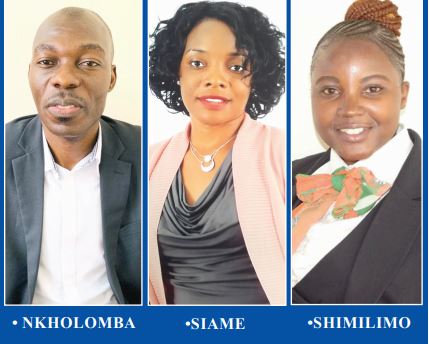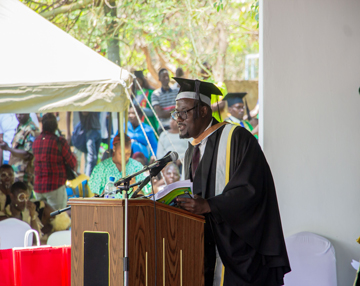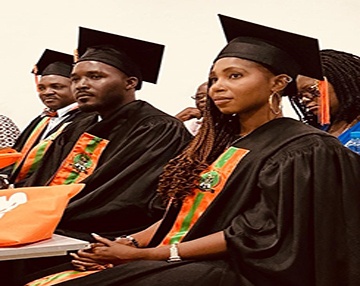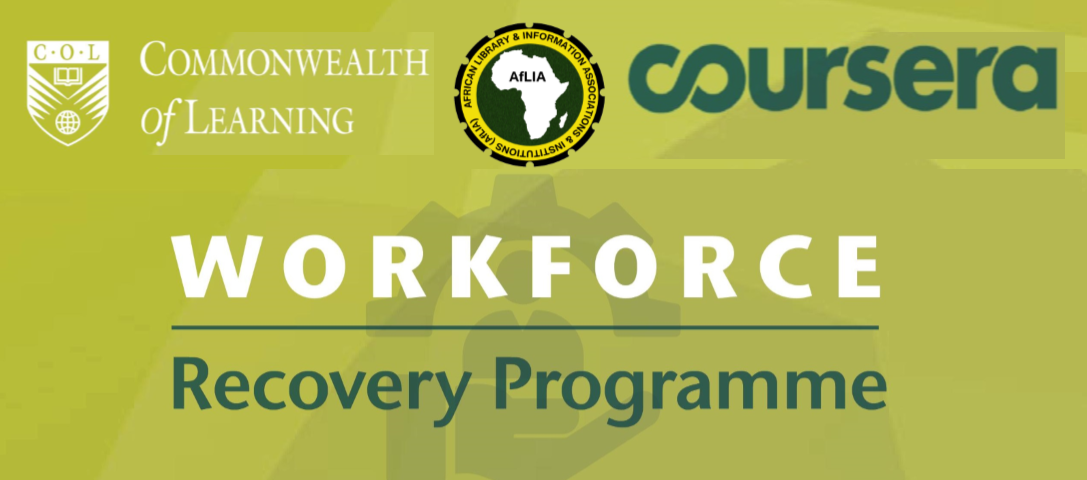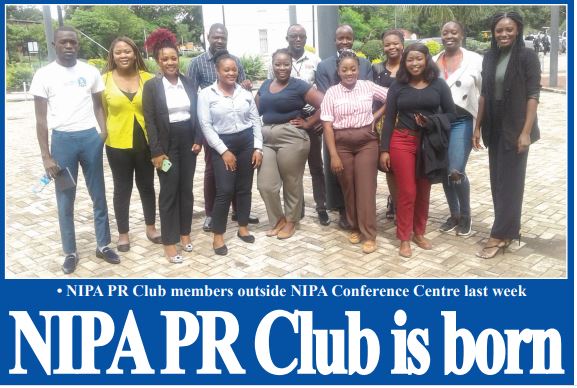
NIPA PR Club is Born.
Pictures and Story Courtesy of Times of Zambia
IT is arguably impossible for one to swim or drive a vehicle inside the walls of a classroom after going through lessons. One has to get into the water to learn swimming and be out on the road to learn driving. Similarly, some subjects taught in institutions of higher learning are practiceoriented and not just theoretical. Therefore, it is important to match theoretical knowledge with practice so that students appreciate both aspects. Practical work includes experiments in laboratories, study tours, projects and assignments, among others. Debatably, getting theoretical knowledge in class has no value until students can apply it for practical purposes. Practical work familiarises students with tools required to use when undertaking assignments. In addition, practical work makes students independent and increases their confidence. A person cannot become an expert overnight. This is why greater practice is needed for one to have expertise. Graduates, who do not embrace practical work, are usually at a loss in the industry in spite of having very good results. Institutions, which integrate theory with practice, prepare their students for jobs after college or university. Theory and practice are two sides of the same coin and hence it is important for students to strike a balance between the two. To lessen the hardship on this commonly tough transition, students can participate in mentorship to gain guidance, experience and increase opportunities. The purpose of mentoring is for an individual to partner with another who either has experience in a desired path or is knowledgeable about a certain field. This is important for students’ success because often times, conversations with mentors can clarify one’s ‘blind eye’ to ideas that could have previously been unknown. Mentorship allows students to receive information from various lenses that can open numerous doors of advancement. Last week, National Institute of Public Administration (NIPA) launched NIPA Public Relations (PR) Club to foster mentorship and networking on the practical side of the PR profession. The club would create platforms and opportunities for students to practice PR skills as they study at the institute. This would be done through workshops, • NIPA PR Club members outside NIPA Conference Centre last week • NKHOLOMBA •SIAME •SHIMILIMO projects, debates and assignments on practical matters of the PR profession. Practising PR and communication specialists would also be invited to speak to students on different subjects. NIPA Communications Officer Mwiinga Shimilimo said there was a gap between academic life and what was happening in the industry. Ms Shimilimo said there was need to strike a balance. Speaking in an interview, Ms Shimilimo said the NIPA PR Club would be supplementing the efforts of NIPA academic and supporting staff to prepare students to fit into the PR gaps in the industry. “Our students have made us proud. The students are trying to fit into NIPA’s mandate of making them relevant employees for the 21st Century. I commend them for launching NIPA PR Club,” Ms Shimilimo said. She said the association would assist students to interact with PR and other communication experts in the industry. “PR profession is a very strategic discipline and we are happy that the students will be prepared to perform in strategic positions as they join the industry. We hope other institutions of higher learning will learn from our example,” she said. Ms Shimilimo said NIPA had a running Memorandum of Understanding (MoU) with the Zambia Public Relations Association (ZAPRA). She described the launch of PR club as timely. Under the MoU, which has been running since December 2019, NIPA and ZAPRA ensures that PR diplomas as well as degrees and master’s degrees offered are relevant to the industry. “We are grateful that ZAPRA is helping to make students relevant in the 21st Century,” she said. Ms Shimilimo said NIPA wanted to see PR professionals take up positions in management and not carrying suitcases for chief executive officers (CEO).
She said PR staff were supposed to give a strategic direction to their organisations ZAPRA president Mwamba Siame said NIPA PR Club would enable students view PR as one of the fastest growing professions in the country. In a response to a press query, Ms Siame said most companies currently had PR or communications personnel in view of increasing demand for the profession. “The demand means that the academic zone should double up and churn out baked PR and communication practitioners who will deal effectively with the changing frontiers of the industry. PR clubs in tertiary institutions will help students prepare for such tasks ahead,” Ms Siame said. She said NIPA was a pioneer of initiatives for ZAPRA, from diploma to a master’s programme in Public Relations. The MoU with ZAPRA offers specialised training as a continuous development programme for PR and communication practitioners. “The launch of NIPA PR Club is timely because there is now a sense of galvanised effort to keep the spirit of communion in developing the profession among students,” Ms Siame said. NIPA PR Club patron Martin Nkolomba said in a response to a press query that the launch of the club was a milestone to the institute as it would serve as a serious platform of mentorship and networking. Mr Nkholomba, a PR lecturer at NIPA, called for concerted efforts to make the association reach greater heights. “NIPA PR Club will help our students to become members of ZAPRA, a professional body for PR practitioners. There are more benefits of belonging to ZAPRA and one of them is mentorship,” he said. NIPA Students Union (NIPASU) president Aaron Siame assured the NIPA PR Club executive committee of support. Mr Siame, who was among the guests during the NIPA PR Club launch, said in an interview that NIPASU would engage NIPA management to support the association. “I have been told that one of the objectives of the club is to help management in marketing the institute. This is commendable because we need to leave NIPA a better institution than the state we found it. I encourage more students to support this club,” he said. Mr Siame urged the club to interact with other universities to learn to share best practices. NIPA PR Club president Miriam Chanda said the club would create opportunities for students to practice the PR skills at the Institute. Ms Chanda said in an interview that members would maintain a positive reputation and build strategic relationships with students’ populace at NIPA. Club secretary general Sandra Gwaba thanked all guests who supported the successful launch of the club. Students and NIPA management must support NIPA PR Club to help the institute build and maintain good relations with different stakeholders internally and externally. According to the British Institute of Public Relations, PR is the planned and sustained effort to establish and maintain good will and mutual understanding between an organisation and its publics. In this regard, PR is an organised activity that helps organisations to be understood by others. PR involves sharing the right information to the right places and people as well as protecting brand reputation. It is a condition common to every individual or organisation in the environment whether people recognise it or act upon that fact.
